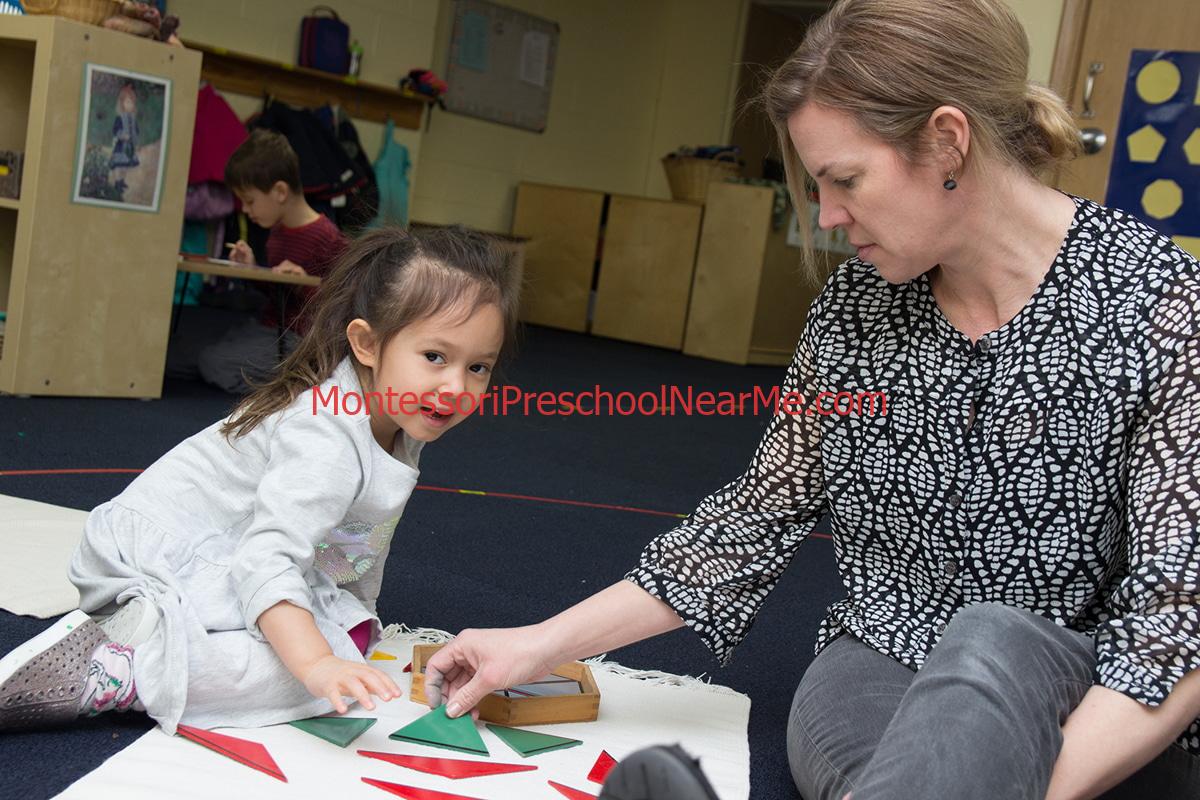
If you’re passionate about guiding children’s self-development and want to make a meaningful contribution to education, becoming a Montessori teacher may be the perfect path for you. Montessori teachers are trained to create a rich educational environment that promotes independence, citizenship, and accountability. They empower students by establishing trusting relationships and providing individualized guidance.
With the increasing demand for certified Montessori teachers worldwide, there are various paths you can take to embark on this rewarding career. From checking local requirements to obtaining certification from reputable providers, we have compiled a step-by-step guide to help you become a Montessori teacher. Join the global network of professionals who believe in creating the right environment for children to develop emotionally, socially, behaviorally, and academically. By using the Montessori educational approach, you can guide children to actively engage in their own unique development and become well-rounded individuals.
Overview of Montessori Education
Montessori education is an educational approach developed by Dr. Maria Montessori in the early 20th century. It emphasizes the importance of individualized instruction, hands-on learning, and mixed-age classrooms. Montessori classrooms are designed to promote independent learning and allow children to explore their interests at their own pace. The Montessori method focuses on fostering a child’s natural curiosity, creativity, and love for learning.
Why Become a Montessori Teacher?
As a Montessori teacher, you have the opportunity to make a significant impact on the lives of children. Montessori education goes beyond academic achievement and aims to nurture the whole child. By becoming a Montessori teacher, you can:
- Foster independence and individuality in children
- Create a positive and nurturing learning environment
- Help children develop a lifelong love for learning
- Guide children’s social and emotional development
- Promote inclusivity and diversity in the classroom
- Make a meaningful contribution to education
Steps to Becoming a Montessori Teacher
1. Research the Montessori Approach
Before embarking on the journey to become a Montessori teacher, it’s essential to understand the Montessori approach and its core principles. Research different Montessori programs, read books written by Dr. Maria Montessori, and explore online resources to gain a comprehensive understanding of the educational philosophy.
2. Understand the Role of a Montessori Teacher
Being a Montessori teacher is much more than delivering lessons. It involves creating a prepared environment, observing children, providing guidance, and facilitating their learning experience. Understand the role of a Montessori teacher as a facilitator, guide, and observer in the classroom.
3. Complete the Necessary Education and Training
Most Montessori schools require teachers to have at least a bachelor’s degree in education or a related field. However, some programs may accept candidates with a high school diploma or associate degree in early childhood education. Research the educational requirements in your local area.
4. Gain Practical Experience
Practical experience is crucial for becoming a successful Montessori teacher. Look for volunteer opportunities or internships in Montessori schools or childcare centers to gain hands-on experience working with children in a Montessori environment.
5. Obtain Montessori Teacher Certification
To become a certified Montessori teacher, you need to complete a recognized Montessori teacher training program. There are several reputable organizations that offer Montessori teacher certification, such as the Association Montessori International (AMI) and the American Montessori Society (AMS).
6. Continue Professional Development
Becoming a Montessori teacher is a continuous learning journey. Attend workshops, conferences, and seminars to stay updated with the latest research and best practices in Montessori education. Join professional organizations and engage in networking opportunities with other Montessori educators.
Pursuing a Career as a Montessori Teacher
1. Job Opportunities
Montessori teachers can find employment in a variety of settings, including Montessori schools, public and private schools, and childcare centers. The demand for certified Montessori teachers is growing globally, providing an extensive range of job opportunities.
2. Salary and Benefits
The salary of a Montessori teacher may vary based on factors such as location, experience, and the type of institution. According to the Bureau of Labor Statistics, the median annual wage for preschool teachers in the United States was $30,520 in May 2020.
3. Advancement Opportunities
As a Montessori teacher, there are numerous career advancement opportunities available. Some teachers choose to become Montessori teacher trainers, administrators, or open their own Montessori schools. Additionally, pursuing higher education in the field of education can open doors to leadership roles.
Challenges and Rewards of Being a Montessori Teacher
1. Challenges of Being a Montessori Teacher
Being a Montessori teacher comes with its fair share of challenges. It requires patience, adaptability, and the ability to cater to the diverse needs of children. Managing a mixed-age classroom, maintaining a calm and organized environment, and addressing individual learning styles can be challenging but ultimately rewarding.
2. Rewards of Being a Montessori Teacher
Despite the challenges, being a Montessori teacher is incredibly rewarding. Witnessing the growth and development of children, establishing deep connections with students and families, and creating a positive impact on their lives are some of the many rewards of being a Montessori teacher.
Frequently Asked Questions (FAQs)
1. Can I become a Montessori teacher without a degree in education?
While a degree in education or a related field is preferred by most Montessori schools, some programs may accept candidates with a high school diploma or associate degree in early childhood education. It’s essential to research the specific requirements in your local area.
2. How long does it take to become a certified Montessori teacher?
The duration of Montessori teacher training programs varies depending on the level of certification and the organization offering the training. It can range from a few months to a year or more.
3. Do I need to specialize in a specific age group to become a Montessori teacher?
Montessori teachers typically specialize in a specific age group, such as infants and toddlers, preschool, or elementary. However, some teachers may choose to work with multiple age groups in mixed-age classrooms.
Conclusion
Becoming a Montessori teacher is a fulfilling and rewarding career choice for individuals passionate about education and child development. By following the steps outlined in this guide, you can unleash your passion for education and embark on a journey to become a Montessori teacher. Remember, the Montessori approach focuses on nurturing the whole child and providing an environment that promotes independence, citizenship, and accountability. Join the global network of Montessori educators dedicated to creating the right environment for children to thrive and become lifelong learners.



